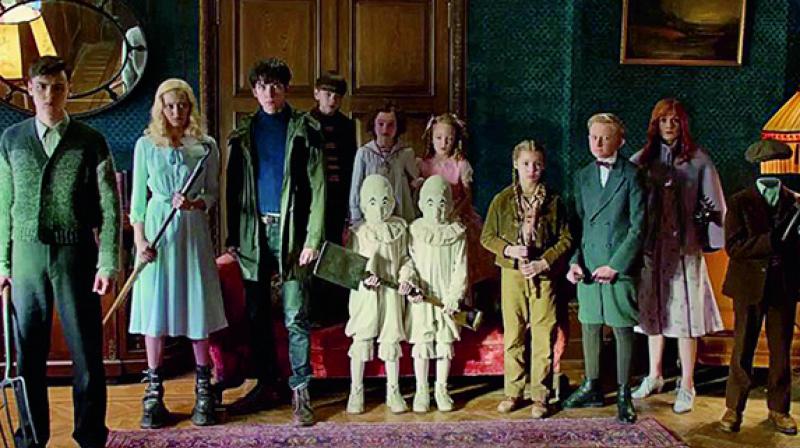Miss Peregrine's Home for Peculiar Children movie review: A Hogwarts for mutants

Cast: Eva Green, Asa Butterfield, Samuel L. Jackson, Terence Stamp, Allison Janney
Director: Tim Burton
The genre of fantasy is one of the first that is introduced to humans, perhaps as soon as we begin to make sense of language. Fantasy is important not because of a desire to escape the humdrum reality of life, but instead to cope with this banality. The hallmark of a good fantasy story is its ability to give us memorably complex characters which defy the urge to label and compartmentalise them as purely good or purely evil. Within the fantastical realm, with magic at their disposal, these characters embody the duality of human nature, and are a work-in-progress because of the choices they make just as the story progresses; they shift shapes unlike flat characters, who are already carved in the mould of either good or evil. Alice from Lewis Carroll’s books, Severus Snape from Harry Potter and Sansa and Arya Stark from Game of Thrones are ideal examples. They are human, all too human.
Tim Burton’s Miss Peregrine’s Home for Peculiar Children, based on the young adult novel of the same name by Ransom Riggs, is ensconced in a universe that does not forgo these binaries. The film follows a familiar trope wherein an unassuming, but good, young person confronts a moment of crisis in life, sets out on a quest, and by the end of this journey comes face to face with a moment of truth as well as another crisis before emerging an enlightened hero who can dispel darkness and evil. Jake Portman (Asa Butterfield) is a teenaged boy living an ordinary life in Florida. He is close to his grandfather (Terence Stamp) who tells him tales of wonder, magic, adventure and of peculiar children.
Tragedy befalls Jake when his grandfather dies, and he must soon find out and fulfil his grandfather’s unfinished tasks — seek out Miss Peregrine, an ymbryne who looks after peculiar children and is also a time-keeper, and kill all the Hallows. There are strong echoes of both Harry Potter and X-Men in the film. Miss Peregrine’s Home is Hogwarts for mutants, wherein the children share certain “peculiarities” with characters from the other two universes. Harry can see thestrals, Jake can see the Hallows; Samuel L. Jackson’s Barron is a shape shifter who can outdo mystique’s mutation, but not her dour and, indeed, mystifying persona.
At 129 minutes, the film builds up slowly, yet it retains a sombre mood, even horrific at times, which is characteristic of Burton’s films. However, the dénouement spools out into clownish and puerile mechanisms — Home Alone-esque shenanigans — to tackle the villains, Barron and his cronies. Burton makes a cameo at this point, and gets, befittingly, hit in the face. Another cameo, by Judi Dench, leaves a lot to be desired. She plays another ymbrene, Miss Avecot, and would have made a better titular character — perhaps in the same vein as Maggie Smith’s Professor McGonagall — a tough but tender warden.
The sharp binaries between good and evil renders this fantasy feature too fantastical. “Does death come only for the wicked, and leave the decent behind?” — asks Jaqen H’ghar in Season Six of Game of Thrones. In the world of the peculiars, it seems, this is the dictum to go by. For the good, both goodness and life remain intact. At a time when major studios are reworking and retelling centuries-old fairy tales, this film takes a step back by eschewing ambivalence in every manner. Cinema, like all art, is mimetic. And this mimesis remains partial and bland unless we account for the range of tastes, and aftertastes, that life has to offer. Miss Peregrine’s Home for Peculiar Children, alas, is only saccharine.
The writer is programmer, Lightcube Film Society

